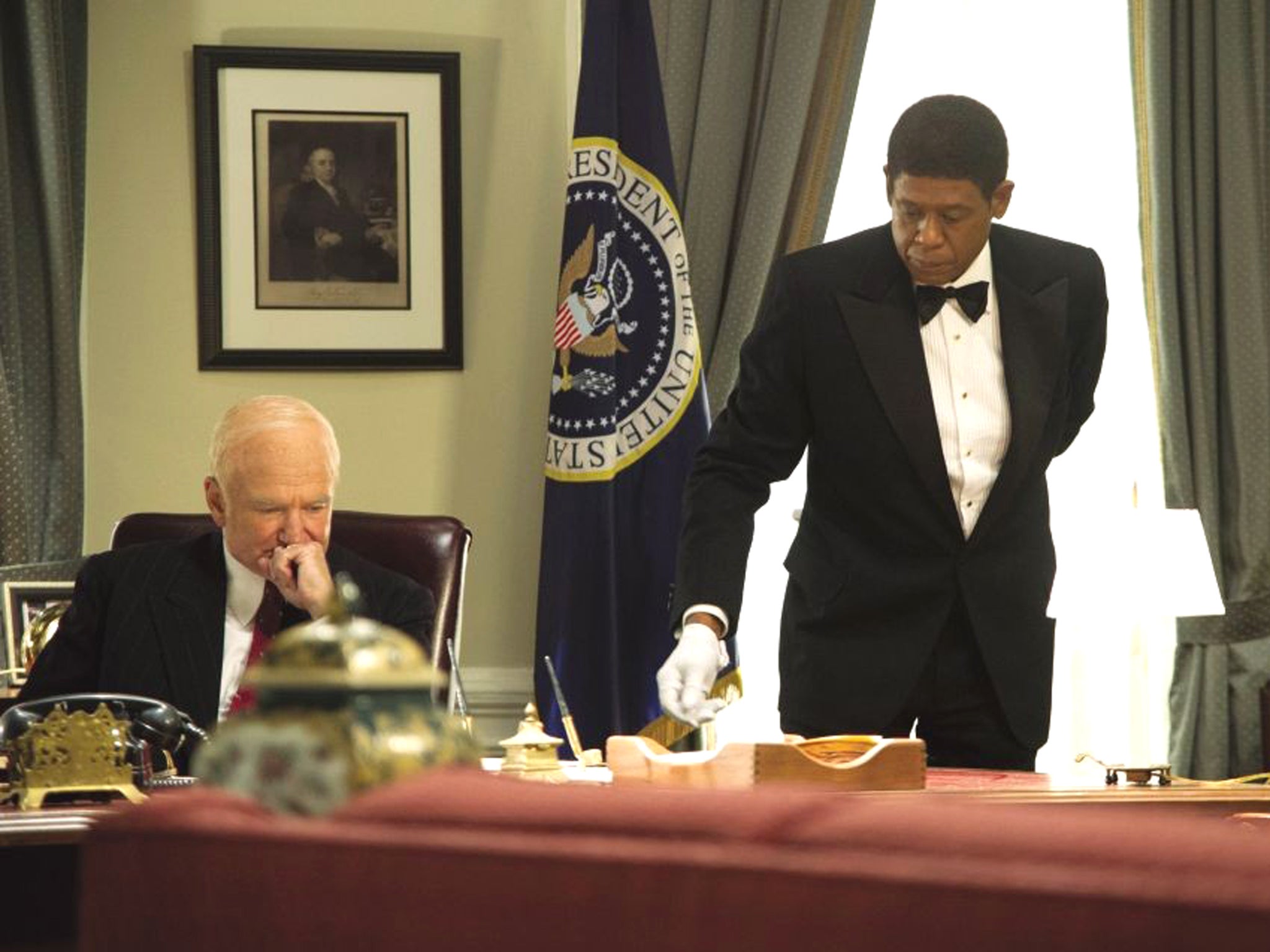The history of black America: Lee Daniels' The Butler and the long walk to freedom
While the US is beginning to confront its racist past on screen, there’s much work to do

Your support helps us to tell the story
From reproductive rights to climate change to Big Tech, The Independent is on the ground when the story is developing. Whether it's investigating the financials of Elon Musk's pro-Trump PAC or producing our latest documentary, 'The A Word', which shines a light on the American women fighting for reproductive rights, we know how important it is to parse out the facts from the messaging.
At such a critical moment in US history, we need reporters on the ground. Your donation allows us to keep sending journalists to speak to both sides of the story.
The Independent is trusted by Americans across the entire political spectrum. And unlike many other quality news outlets, we choose not to lock Americans out of our reporting and analysis with paywalls. We believe quality journalism should be available to everyone, paid for by those who can afford it.
Your support makes all the difference.Honestly, you wait ages for an honest, hard-hitting work of art that deals with the black historical experience in America, then three come along at once. London’s Young Vic theatre is currently host to the Broadway musical The Scottsboro Boys, where the story of a gross miscarriage of justice – the wrongful imprisonment of nine black men and boys for rape in Alabama in 1931 – is heightened by being told as a musical, and a minstrel show at that.
Another seemingly incredible but true story is told in Steve McQueen’s film 12 Years a Slave: that of Solomon Northup, a free black man kidnapped in Washington in 1841 and sold into bondage in Louisiana for a dozen brutal years. The film is solemn, appalling, sobering – everything Quentin Tarantino’s splashy Django Unchained was not – and is rightly expected to scoop several Oscars, not least for its star Chiwetel Ejiofor. Finally, Lee Daniels’ The Butler goes on general release here on Friday. This sees Forest Whitaker play a fictionalised version of the African-American butler Cecil Gaines, who served eight US presidents. The film also addresses the foundation of the Black Power movement.
Is there something in the air? Fifty years on from Martin Luther King’s “I have a dream” speech, with a black president in office, does the US finally feel ready to address its racist past? Maybe. The cumulative weight of history could mean we are now seeing dramas that would previously have foundered. Spike Lee tried for years to raise money for a film about the 1936 and 1938 boxing matches between Joe “Brown Bomber” Louis and Nazi favourite Max Schmeling. Samuel L Jackson wanted to film the story of the Tuskegee Airmen, the squadron of black Second World War fighter pilots, but such a film was made only, eventually and badly, by George Lucas, using his own money.
Even The Scottsboro Boys languished in development hell from 2002 until its off-Broadway premiere in 2010, six years after the death of one of its creators, Fred Ebb. Certainly, as the actor David Harewood told me recently, there is now a black middle class in America that’s worth marketing entertainment to, facilitating his casting as CIA boss David Estes in Homeland, and Kerry Washington’s as Olivia Pope in Scandal – the first leading role for a black woman in a prime-time network drama.
David Lan, the artistic director of the Young Vic, thinks there may be a broader issue at work. “Only 150 years ago, most of the people in the world were ‘unfree’ – slaves, indentured labourers, serfs, sharecroppers,” he says. “Today, hundreds of millions are still unfree. Stories of how people free themselves are as powerful now as they have ever been. With The Scottsboro Boys, we’ve seen from audience reaction that tens of thousands of Londoners respond strongly to this story of freedom and ‘unfreedom’. It seems clear that you don’t have to have a grasp of black history before you sit down in the theatre to be standing in rapturous applause at the end of the show.”
The American-born writer and commentator Bonnie Greer, whose memoir A Parallel Life: Vol 1, A Proper Girl is published next spring, has mixed feelings about this swathe of dramas, however. “It’s another generation coming on stream,” she says. “A lot of them are looking at and engaging with huge, archetypal stories now. Unfortunately, stories about butlers and maids, killers and slaves, or variations on those types, are still the only ones that black people generally are allowed to do when it comes to serious stuff on stage and screen and TV. So, in 2013, this is supposed to be a triumph?” Quite. And before we patronise American culture too heavily, it’s worth remembering that the British slave trade has barely been touched upon as a subject for drama before or since Michael Apted’s Amazing Grace in 2006.
‘The Butler’ is released on Friday
Join our commenting forum
Join thought-provoking conversations, follow other Independent readers and see their replies
Comments